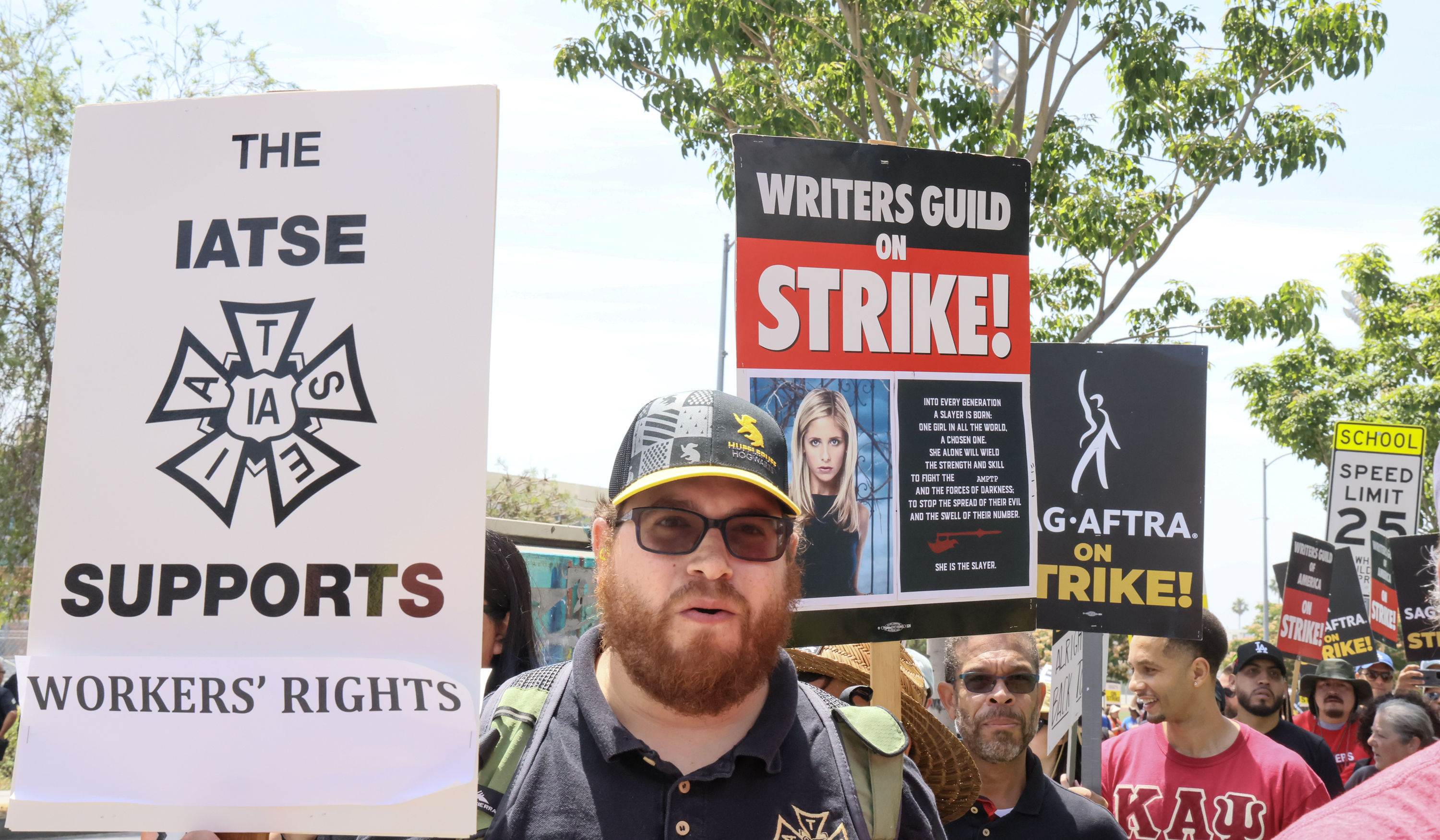
The smarter way to stay on top of the streaming and OTT industry. Sign up below.
You are now subscribed
Your newsletter sign-up was successful
With the Hollywood's lengthy WGA and SAG-AFTRA work stoppages finally in the rear-view, film and TV production is set to hit full stride again by mid-January.
But as the Penske showbiz trades first reported this week, labor peace could be short-lived. The International Alliance of Theatrical Stage Employees (IATSE), which represents more than 170,000 behind-the-scenes entertainment workers, will soon seek to negotiate its own contract with studios that expires July 31.
IATSE is expected to began its negotiations with producers in March, seeking a new deal for editors, lighting technicians and other behind-the-scenes workers.
Also up for renegotiation is the Basic Crafts contract, which protects Teamsters — drivers, animal wranglers and other below-the-line crew members.
During a time of rising worker solidarity — IATSE members, for example, picketed alongside writers and actors over the summer during their strikes — it’s unclear whether Hollywood studios have achieved lasting labor peace.
“We believe in an industry where every worker is valued and their contributions recognized, whether their labor takes place on or off screen,” IATSE said in a statement on its website. “As all eyes shift to our union’s own upcoming negotiations with the AMPTP in 2024 … we are primed to roll out an unprecedented campaign of member engagement, communication and transparency to secure the best possible contracts in the eyes of our membership as well.”
Both studios and the below-the-line workforce have struggled financially through the WGA and SAG-AFTRA strikes. And while IATSE may be inspired by the negotiations of other unions, entering a new work stoppage likely won’t be a decision made lightly.
The smarter way to stay on top of the streaming and OTT industry. Sign up below.
“The prolonged negotiations and resulting shutdown caused intense hardship for workers in our industry throughout the world,” added IATSE’s statement. “With so many facing urgent difficulty making ends meet, it is now imperative the studios work with the entertainment guilds and unions to focus on a swift and safe resumption of production to mitigate further financial strain and prevent unnecessary harm on our community.”
Some workers saw the strike on the horizon and had money saved up, but for many, the six-month stoppage was far longer than anticipated.
IATSE members have suffered arguably as much as their striking WGA and SAG-AFTRA peers, and they will likely seek compensation to make up for lost wages in the form of an improved labor contract.
In fact, two years ago, IATSE members came within a few votes of rejecting their last contract. That would have resulted in the union’s first industrywide strike in its history.
In an October communication to members, the Motion Picture Editors Guild (an IATSE subsidiary) revealed the implementation of a new contract action team, which bears similarity to the WGA’s contract captain model.
“We don’t expect the next round of negotiations to be easy,” the Editors Guild said in its statement. “We know that we need to be prepared to fight for the contract we deserve. In any fight, a union is only as strong as its membership is united, informed and engaged.”
Jack Reid is a USC Annenberg Journalism major with experience reporting, producing and writing for Annenberg Media. He has also served as a video editor, showrunner and live-anchor during his time in the field.
